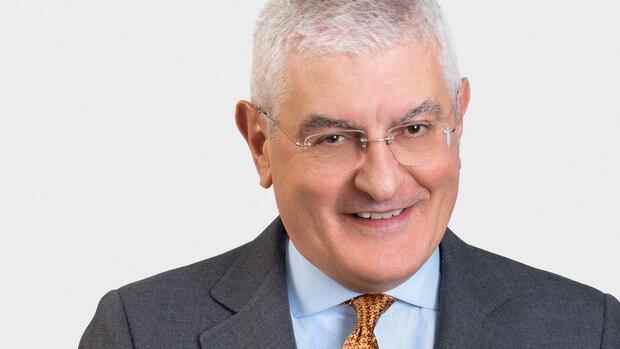Munich “In difficult times there are always great investment opportunities”, “Nani” Falco Beccalli is convinced. Since 2019, the former European boss of General Electric (GE) has been investing in small and medium-sized industrial companies that have got into difficulties or have not yet made the leap to digitization. His fund, Falco Global Partners, includes other ex-GE executives, as well as a former Black & Decker manager.
Beccalli also sees the global turmoil and economic uncertainties between the corona pandemic and the Ukraine war as an opportunity to enter other companies. Therefore, the number of investments in his fund should now increase significantly with the help of capital from external investors.
Falco Global Partners usually takes a stake of two to three percent, often at the request of private equity firms or the management. “We work with the companies operationally,” says Beccalli, “if there is progress, we get additional shares in return.”
The unique selling point is the expertise of the partners involved. “We have the General Electric gene. That’s our currency,” notes Beccalli.
Top jobs of the day
Find the best jobs now and
be notified by email.
GE has long been considered a management icon. In recent years, however, the traditional group has gotten into serious trouble, made high losses and was split up. “But most investors still remember the earlier GE, it was an incredible company,” says Beccalli. The strength of the US group has always been to optimize processes. This ability is still valued by investors today. GE’s crisis has other causes.
The industry is still skeptical
According to estimates from industry circles, it remains to be seen whether the name General Electric will actually still have such an effect on German medium-sized companies. The best reference in such cases are always successful investments in similar situations.
Beccalli worked for General Electric for over 40 years, most recently leading the European business until 2015. Under him, GE expanded its research activities and was able to increase sales of wind turbines and medical technology. In Germany, however, GE found it difficult to get close to its rival Siemens.
Since leaving GE, Beccalli has been active in the private equity sector. Falco Global has so far invested capital from the nine partners. Now they want to attract more investors and grow their managed portfolio to $1 billion over the next seven years.
Falco Global’s existing portfolio includes the Spanish healthtech company Boxsr, the German microscopy specialist Precipoint, educational software developer Bettermarks and the US catalyst manufacturer Cormetech.
The spread across very different sectors is unusually large for a fund. However, Beccalli believes that GE’s management methods work in a wide range of industries: enter companies, restructure them, improve cash flow and then invest in digitalization.
In this way, Falco Global gives the associated companies operational support and also establishes partnerships with start-ups in the portfolio. The partners also want to do this as service providers for other funds.
Private equity companies see good opportunities
Peter Laib, Chairman of the Supervisory Board of Yielco Investments, also sees entry opportunities in the current, uncertain situation. “There are a large number of small and medium-sized companies in particular that are insufficiently positioned for future challenges,” Laib told the Handelsblatt.
Yielco manages 7.5 billion euros in assets for predominantly institutional investors in German-speaking countries and also focuses on small and medium-sized companies in special situations in the private equity sector.
The lack of focus on the digitization of their business models is one of the main problems of many companies, said Laib. “There are very attractive opportunities here for experienced investors with excellent prospects for returns.”
In view of rising interest rates and high inflation, other medium-sized companies could find themselves in trouble. “This is especially true when a high debt burden has been taken on too carelessly over the past few years and the necessary structural change has been tackled too hesitantly.” It is important that investors have “extensive investment experience and proven expertise in the operational and financial repositioning of the target companies”.
The SME barometer from KfW and Ifo shows that SMEs are currently looking to the future with skepticism. Although business is currently going well for many companies, expectations for the coming months are negative.
The companies were looking into an abyss, says KfW chief economist Fritzi Köhler-Geib. “How far they really fall depends on how far the spiral of sanctions and escalation continues, but also on the duration of the war.”
These are interesting times for venture capital and private equity specialists like Falco Beccalli. The Italian is also aware of the risks for the global economy: the Ukraine war will last a long time, inflation will become a major problem, and China with its zero Covid policy and the Taiwan conflict will be a factor of uncertainty.
But the following always applies: “Companies are cheaper in difficult times.” Beccalli wants to open a branch in Japan with Falco Global Partners soon. “I continue to believe in globalization and the Asia Pacific region is where you need to be in the 21st century.”
More: General Electric plans to split into three companies
